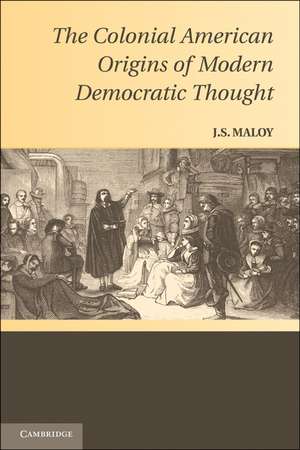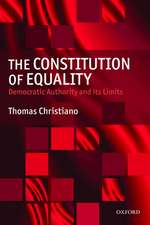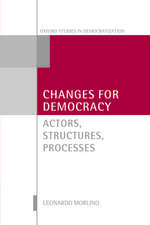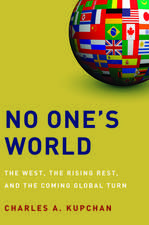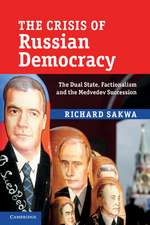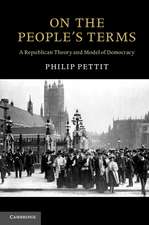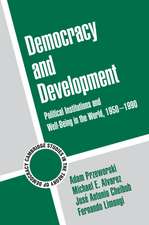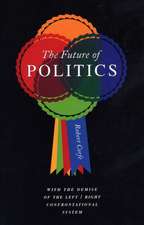The Colonial American Origins of Modern Democratic Thought
Autor J. S. Maloyen Limba Engleză Paperback – 18 iul 2010
| Toate formatele și edițiile | Preț | Express |
|---|---|---|
| Paperback (1) | 283.03 lei 6-8 săpt. | |
| Cambridge University Press – 18 iul 2010 | 283.03 lei 6-8 săpt. | |
| Hardback (1) | 439.33 lei 6-8 săpt. | |
| Cambridge University Press – 21 sep 2008 | 439.33 lei 6-8 săpt. |
Preț: 283.03 lei
Nou
Puncte Express: 425
Preț estimativ în valută:
54.16€ • 56.70$ • 44.81£
54.16€ • 56.70$ • 44.81£
Carte tipărită la comandă
Livrare economică 05-19 aprilie
Preluare comenzi: 021 569.72.76
Specificații
ISBN-13: 9780521730556
ISBN-10: 0521730554
Pagini: 226
Dimensiuni: 152 x 230 x 14 mm
Greutate: 0.34 kg
Editura: Cambridge University Press
Colecția Cambridge University Press
Locul publicării:New York, United States
ISBN-10: 0521730554
Pagini: 226
Dimensiuni: 152 x 230 x 14 mm
Greutate: 0.34 kg
Editura: Cambridge University Press
Colecția Cambridge University Press
Locul publicării:New York, United States
Cuprins
1. Introduction: accountability and democratic theory; 2. Radical trust and accountability in the seventeenth century; 3. Fidelity and accountability in Virginia and Bermuda; 4. Politics and ecclesiastics in Plymouth and Massachusetts; 5. Constitutional conflict and political argument at Boston; 6. Democratic constitutionalism in Connecticut and Rhode Island; 7. Conclusion: anglophone radicalism and popular control.
Recenzii
'Jason Maloy's book is a superb exercise in historical retrieval. But his book should be interest far more than specialists in early American political thought; his book offers excitingly different ways of looking at the general issues of political representation and elections that are worth thinking about in the 21st century.' Sanford Levinson, University of Texas Law School and author of Our Undemocratic Constitution
'J. S. Maloy's remarkable new book locates an alternative strand of democratic thought in early colonial America. Maloy shows how neglected figures such as John Bargraves, John Robinson, Thomas Hooker, and Israel Stoughton promoted popular control of, rather than mere consent to, public officials, and advocated institutions of popular scrutiny and sanction of magistrates in addition to general elections. Maloy decisively refutes dominant scholarly narratives asserting that 17th and 18th century republicans uniformly preferred strict electoral models of representation and explicitly disavowed more extensive accountability practices associated with ancient and medieval popular governments. Not only does Maloy shift the original, modern democratic moment back from the English, American and French Revolutions to early colonial Virginia, Bermuda, and Rhode Island, he also invaluably helps us to reconceptualize the place of accountability in democratic theory and practice today. In sum, [The] Colonial [American] Origins of Modern Democratic Thought is a strikingly original contribution to historical and programmatic political theory.' John P. McCormick, University of Chicago
'Maloy achieves two remarkable feats in this book: he reintroduces us to the under-appreciated political theory of colonial America, and he expands the range of institutional alternatives we should consider in addressing the problem of holding our representatives accountable. Maloy demonstrates that whereas anti-democratic forces in the colonial era argued that elections were a sufficient means of ensuring accountability, committed democrats advocated supplementing elections with other mechanisms. This is a fascinating and provocative work, and is of critical importance for scholars of the history and theory of democratic institutions.' Melissa Schwartzberg, Columbia University
'… Maloy makes a compelling case for the historical and intellectual importance of earlier fights over the form of popular rule. … Maloy lays the groundwork for a rich developmental account of the principle of democratic accountability …' The Review of Politics
'J. S. Maloy's remarkable new book locates an alternative strand of democratic thought in early colonial America. Maloy shows how neglected figures such as John Bargraves, John Robinson, Thomas Hooker, and Israel Stoughton promoted popular control of, rather than mere consent to, public officials, and advocated institutions of popular scrutiny and sanction of magistrates in addition to general elections. Maloy decisively refutes dominant scholarly narratives asserting that 17th and 18th century republicans uniformly preferred strict electoral models of representation and explicitly disavowed more extensive accountability practices associated with ancient and medieval popular governments. Not only does Maloy shift the original, modern democratic moment back from the English, American and French Revolutions to early colonial Virginia, Bermuda, and Rhode Island, he also invaluably helps us to reconceptualize the place of accountability in democratic theory and practice today. In sum, [The] Colonial [American] Origins of Modern Democratic Thought is a strikingly original contribution to historical and programmatic political theory.' John P. McCormick, University of Chicago
'Maloy achieves two remarkable feats in this book: he reintroduces us to the under-appreciated political theory of colonial America, and he expands the range of institutional alternatives we should consider in addressing the problem of holding our representatives accountable. Maloy demonstrates that whereas anti-democratic forces in the colonial era argued that elections were a sufficient means of ensuring accountability, committed democrats advocated supplementing elections with other mechanisms. This is a fascinating and provocative work, and is of critical importance for scholars of the history and theory of democratic institutions.' Melissa Schwartzberg, Columbia University
'… Maloy makes a compelling case for the historical and intellectual importance of earlier fights over the form of popular rule. … Maloy lays the groundwork for a rich developmental account of the principle of democratic accountability …' The Review of Politics
Notă biografică
Descriere
This book explores the profound impact of seventeenth-century American political thought on modern democratic ideas.
